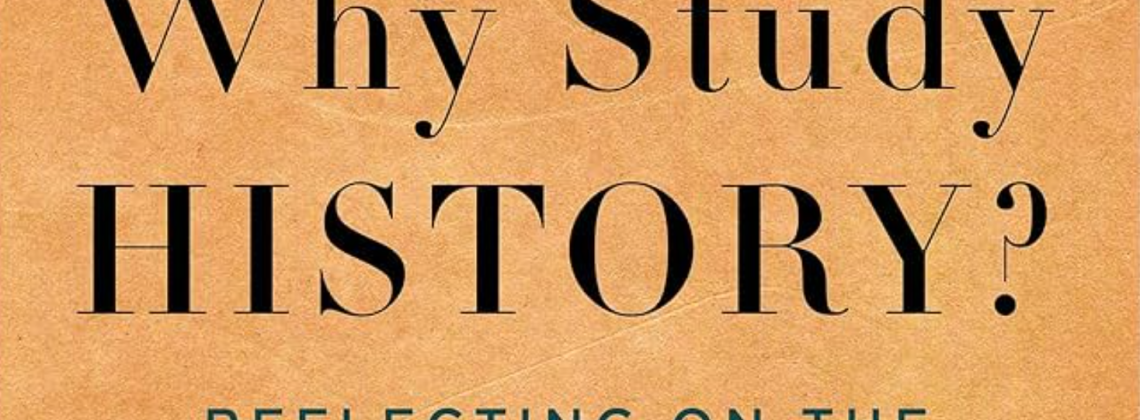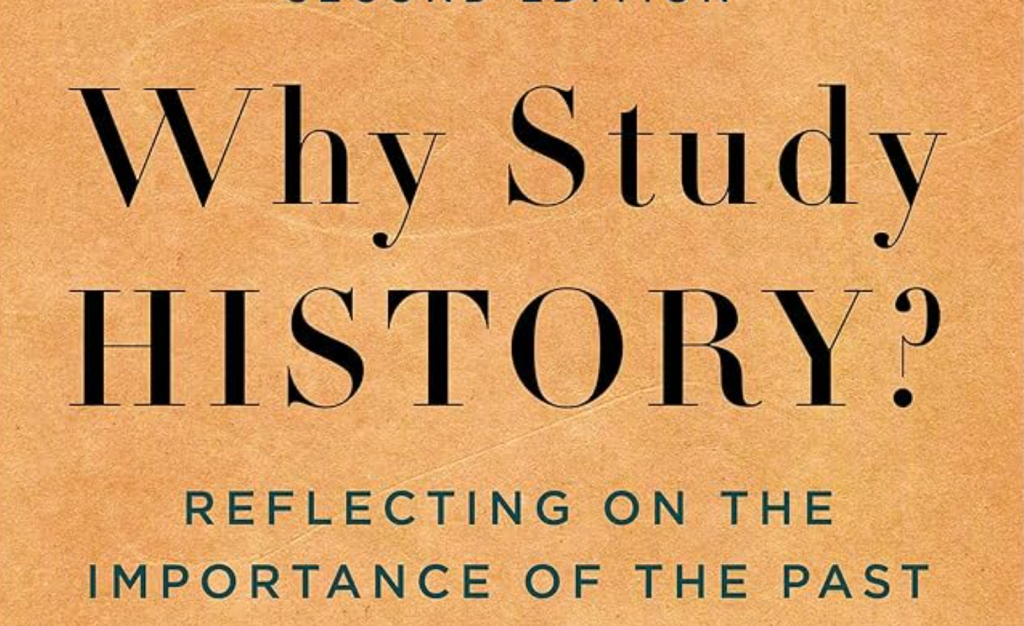

It’s an antidote to narcissism and a pathway to change
John Fea is the Executive Editor of Current and a professional historian now for over a quarter of a century. Most of his books examine a topic in American religious history (The Way of Improvement Leads Home and The Bible Cause: A History of the American Bible Society) or show the importance of knowing history for our understanding of recent political phenomena (Believe Me: The Evangelical Road to Donald Trump). In Why Study History?, however, Fea tries to draw away the curtain and take the reader backstage. It is an examination of how historians ply their craft and why the study of history matters not only for historians but really for all of us. Today marks the publication of the second edition, and in what follows Fea answers some questions about this project and its significance.
***
The first edition of Why Study History? is now eleven years old and has been used very broadly—I can name probably close to a dozen people off the top of my head of people who use it regularly. I’d love to hear a bit of the story behind this project: Why did you write this book to begin with?
I wrote Why Study History to serve as a textbook for a one-credit required course for first-year Messiah University history majors. I designed the course to introduce students to the Messiah University approach to the study of history. I wanted them to start thinking about the kinds of questions and issues they would wrestle with in their upper-division courses. The book was designed as an introduction to historical thinking, the role that Christian faith might play in their engagement with the past, and how the study of history might impact their lives as citizens and people of faith.
I have a two-part follow-up: Why did you feel that a second edition was necessary? And why is it necessary now? On a related note—and this feels maybe like a rephrasing of this question in a sense—you’ve mentioned in brief before that you’ve noticed in teaching over the past few years that students haven’t been connecting with the book the way that they used to. Why do you think this is the case? What’s different now?
The world is a very different place than it was in 2015. When Baker Books approached me about a second edition, I thought I would rewrite several sections to make sense of these changes. I was going to soften the book’s Christian historicism to account for the growing number of historians who are now using history to advance social causes. I was also going to develop my section on history and moral criticism since some of my own work was moving in that direction. But as I edited, I concluded that the first edition’s coverage of these themes was still right.
In the end, Why Study History? is a textbook for new history majors. Undergraduate students of history need to learn to think like historians, not cultural critics or activists. Some of them may become activists or cultural critics in the future, but as history majors the thinking skills associated with the discipline must be central to the process of history education.
I think students struggle with the book because it challenges them, in an age of hyper-individualism and what New York Times columnist Nicholas Kristoff once called “The Daily Me,” to see themselves as part of a world that is bigger than themselves.
The book challenges them to understand historical subjects before critiquing them. This is why, as one of my intellectual heroes, Sam Wineburg, once said, history is an “unnatural act.” I still believe that historical thinking, when practiced well, relieves us of our narcissism. In fact, the view of Christian historicism that I set forth in the book is still one of our best options for changing the world.
This book is an apologetic for the value of history as a discipline, but it’s really preaching to the choir, so to speak—most of the readers encounter the book in college-level history courses, and specifically in Christian colleges. And yet, thinking historically is an important skill for the general public too. Could you give just one particularly telling example for non-historians, and especially for Christians, of why thinking historically is important? And what do historians even mean when they say this?
As noted in my last answer, history requires understanding and empathy. This does not mean we have to agree with the actors we meet in the past, but we must engage them on their own terms, not ours. When we do this, it only strengthens our moral critique in the present.
When we argue and debate in public life, we always want to engage with our opponents’ best argument. This is not easy, and I have often failed at doing so myself, but it is essential if we want to maintain some semblance of democratic discourse. For example, what might a deep dive into the lives of the post-World War II white working class mean for our understanding of the rise of Donald Trump’s populism? When people tell a poor farmer in Kansas or a plumber in northern New Jersey that they have “white privilege,” labor historians can help us make sense of why farmers and plumbers might resist such a claim. This is what historians do all the time, but in today’s social media-saturated culture any attempt at understanding Trump voters without critiquing them is viewed as suspect. Sadly, many trained historians are now doing this as well.
History is serious, and historians are very serious people. But what is one surprising or funny story that you tell in this book?
I continue to tell the story of how my former student Tara convinced the leadership of a hospital in Malawi that she was an ideal candidate for a position as an “embedded blogger.” She said that the hospital should hire her not in spite of her study of history but because of it. You can get the book and read the entire story.
We all have alternate career dreams—those things we had considered doing and maybe would have done, had life gone a little bit differently. If you hadn’t become a historian, what were your alternate career dreams?
As a boy I thought I would probably attend an east coast university such as Rutgers or Syracuse (I got accepted to both) to study journalism in the hopes of becoming a newspaper reporter or a sportscaster. Instead, God grabbed me as a teenager and, at the time, seemed to be directing me toward Christian ministry. But even though I attended a Bible college and an evangelical divinity school, I never really saw the pastorate as a serious option. Today, I see my work as a Christian historian, blogger, and now executive editor of Current as combining my interests in journalism, theology, and especially history and historical thinking.